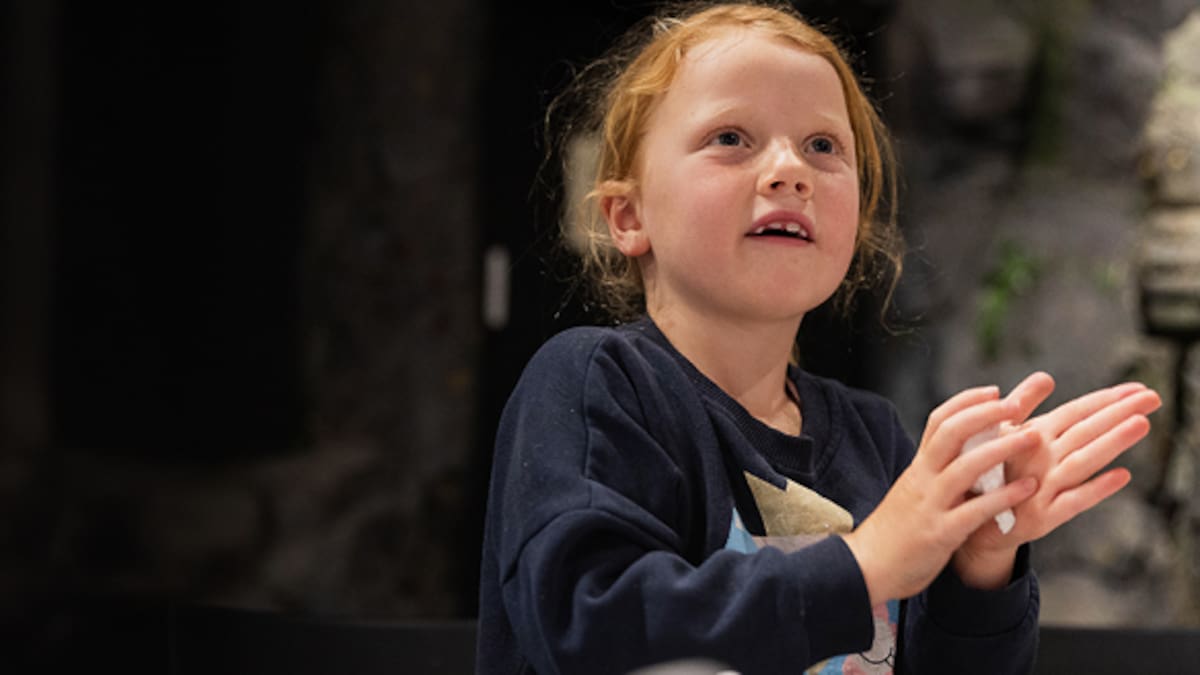Erika Simons is preparing for her first performance since reaching the upper echelons of European opera — National Opera Der Rosenkavalier. Photo: Lannon Harley.
By day Erika Simons is the mum standing next to you at the school gate for pick-ups or a student walking the halls of a university campus. By night, she’s an opera singer.
They’re your lawyers, nurses, green grocers and public servants – opera singers walk among us. Unless you know what to look for (a sequinned ball gown peaking through a coat, perhaps), you’d never pick them.
“I think there’s a misconception that we walked around in horned Viking helmets and you can see us coming,” Erika laughs. “If it does come up, people usually say ‘Oh, wow, I’ve never met an opera singer’ or ‘You don’t look like an opera singer’… I’m never sure how to take that one.”
Though apparently you wouldn’t know it, Erika is opera through and through, having hit the heights of a full-time career in Germany that spanned more than a decade.
“They were some of the most rewarding, exciting years of my life but also some of the highest pressure,” she says. “The job didn’t have the most family-friendly hours as it turned out.”
When Erika steps into the role of Sophie in National Opera’s production of Der Rosenkavalier in July, it will mark her first time performing since opera ceased being her full-time job.
As a full-time opera singer, Erika would rehearse in four-hour blocks morning and evening, sometimes six or seven days a week. On performance days, she would be in hair and make-up by 5:30 pm and on stage by 7:30 pm, and wouldn’t get home until close to midnight.
“There’s a reason I was single most of my time in Germany,” she says. “If my husband hadn’t come to do some work for one of my shows, we might never have met.”
During COVID, when opera came to a standstill for two years, Erika had a son. Like for so many, the pandemic was a time to take stock of her life.
“I came to the realisation I would not be able to give as much of myself to my performing career as I had before I became a mum,” Erika says. “I am sure it’s possible for some, but I personally felt I couldn’t do it the justice I would want to as a full-time singer.”

Erika says the ceiling for artists in Australia is very different to Europe, but National Opera provides chances for them to nourish their artistic cravings. Photo: Jörg Landsberg.
The family relocated to Australia where Erika says the vast majority of opera singers have day jobs.
There’s a variety of reasons opera singing is a moonlighting gig for so many Australian artists, the most common being finances.
“It has to be said that Australian culture has different priorities. In Germany, theatre receives hundreds of thousands of euros in funding because the arts are highly valued. In Australia – even at the highest level of Opera Australia – most, if not all, artists are juggling other jobs to supplement their singing,” Erika says.
“Once you have a taste of performing opera and you love it, it’s not something you can put on the shelf forever. What’s addictive to me is that idea of making music at a really extreme level with passionate people … For me, it’s an itch that will always need scratching.”
Fortunately, National Opera has found a way to feed that desire for so many Australian performers.
Der Rosenkavalier, a reduction of Richard Strauss’s beloved opera, is condensed into a streamlined, emotionally charged performance that captures the essence of longing, passion and the complexities of love – all in under 90 minutes.
The talented cast prepares independently, coming together for staging rehearsals only in the lead-up, a few nights a week or on weekends.
For Erika – now studying for a master’s in speech pathology while working as a research assistant – the flexible rehearsal time makes it possible.
“It’s a win-win for everyone because it’s manageable for performers to learn, memorise and execute around their families and jobs and the public gets to come and experience high-quality performances right on their doorstep. That’s good for anyone who can’t spend the time and money on a three-hour opera on a weeknight in Sydney,” Erika says.
“That’s what’s special about National Opera – without them so many artists wouldn’t have that outlet for their talent and audiences would truly be missing out.”
Der Rosenkavalier runs from 4 to 11 July 2025 at the National Opera, Albert Hall, Yarralumla.






